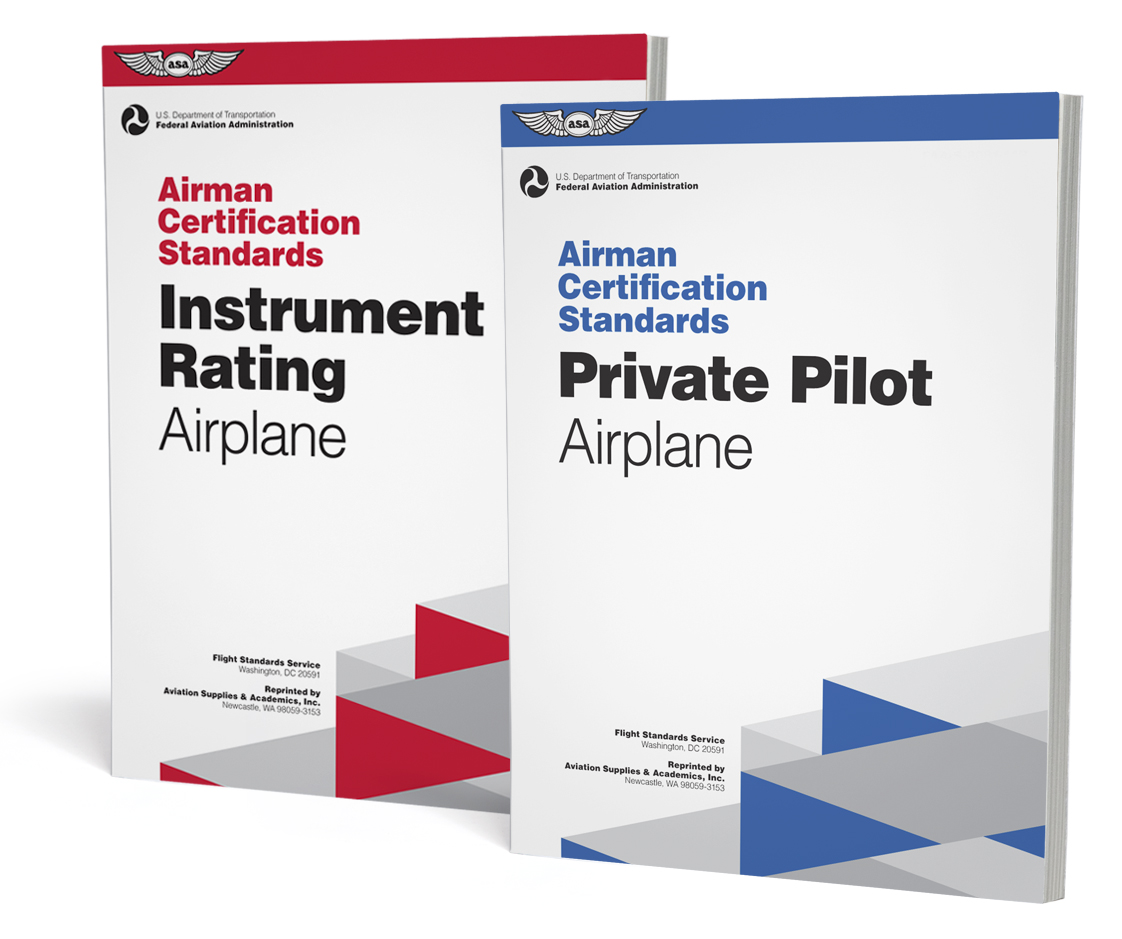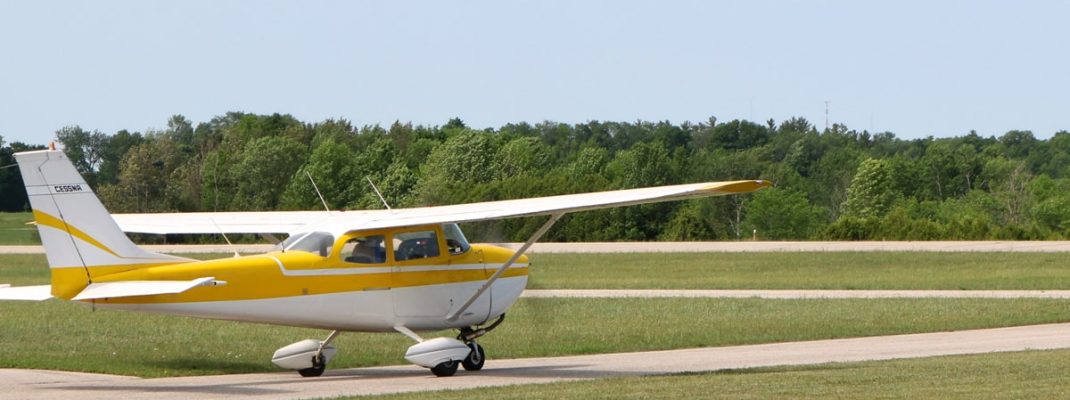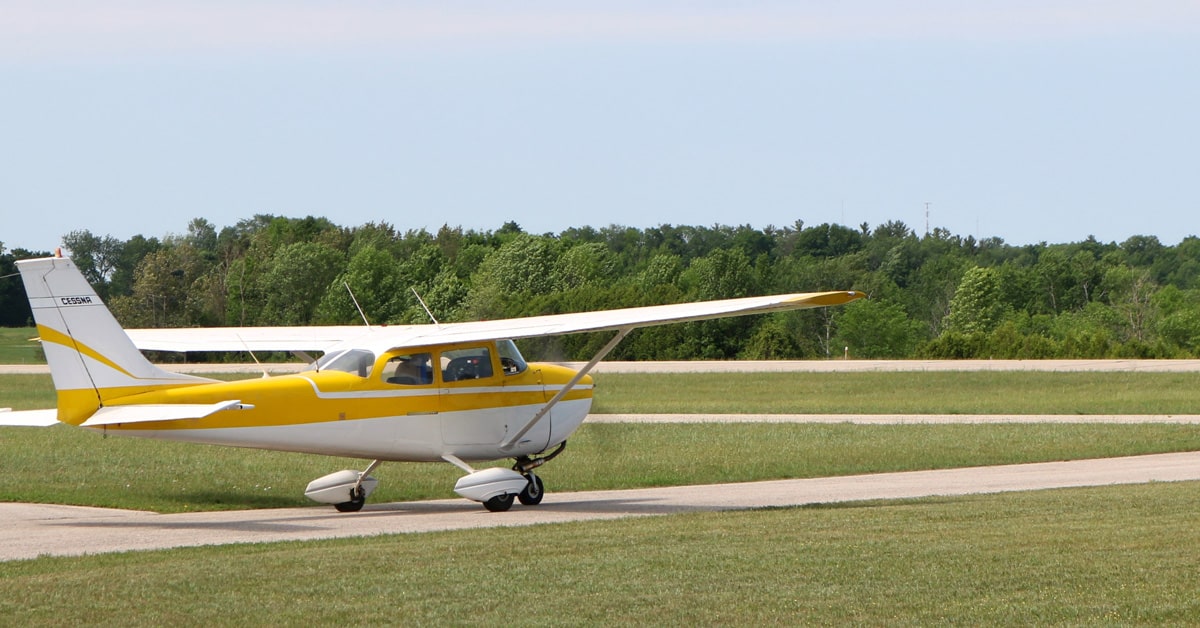It’s official! Final versions of the Airman Certification Standards (ACS) for Private and Instrument Pilot Airplane have been published and will go into effect in just a few days (June 15th, 2016). These new ACS will replace the Practical Test Standards. The anticipation has been building for weeks now in our small tight-knit aviation community. I have seen reactions from student pilots and flight instructors ranging from excitement to sheer panic. A lot of this anxiety and panic I think can be attributed to lack of understanding or misconceptions about how the ACS implementation will affect airman training and testing.
Earlier in the week I sat down with ASA’s Director of Curriculum Development, Jackie Spanitz, to give us some firsthand insight as it relates to the ACS and to address some of those misconceptions. Ms. Spanitz has been a part of the ACS process since day one and a charter member of the Aviation Rulemaking Advisory Committee (ARAC) Airman Certification Standards (ACS) Working Group (WG) or ARAC ACS WG for short. Our Q&A session went as follows.
Ms. Spanitz what is your position on the ARAC ACS Working Group?
I am the ACS Workgroup Subgroup Lead for the (1) Private, Instrument Commercial, ATP ACS Development committee, (2) Handbook Review committee, and (3) AMT ACS Workgroup. This means I work with the FAA and Industry committee members to execute the tasks assigned to us by the ARAC ACS committee chairs and FAA sponsors.
What made you want to get involved?
I have been working with airman certification training and testing for more than 20 years—resulting in a very intimate familiarity with the FAA Knowledge Exam, training curriculums, and practical exams (checkrides). In 2011 we noticed a dramatic increase in failures on the Fundamentals of Instructing (FOI) FAA Knowledge Exam which directly correlated to a test change we didn’t feel supported safety or reflected a meaningful and relevant exercise. We worked with AOPA and NAFI to voice these concerns to the FAA office responsible for airman training and testing. The FAA was receptive to our input and asked us to join them in seeking a resolution—not only to the immediate problem at hand, but to establish a process by which all airman testing would be meaningful and relevant, training and testing would be correlated for an effective system, and ultimately further the safety initiatives. The first committee established nine recommendations to the FAA—seven of which the FAA accepted and began implementing (including the transition from Practical Test Standards to Airman Certification Standards). The second committee established sample ACS for the Private, Instrument, and Commercial airplane certificates/ratings, as well as the associated FAA guidance and testing changes that were necessary and began a prototype process to test the new ACS in actual training environments. The current and third committee I’m participating on is continuing the prototypes, finalizing the Private and Instrument documents, and continuing to refine the Commercial, Instructor, and ATP ACS.
Does this mean you’ve gotten to see the FAA Knowledge Exam test questions for the last five years?
No. The FAA Knowledge Exams remain closed tests. No one outside the FAA sees the test questions. However, the committee established a process by which the FAA review board evaluated each test question. The FAA releases public sample exams and a “What’s New” document each test cycle which is their way of communicating how training should evolve to remain correlated to the tests.
As many of us know, or have at least heard, the ACS implementation will be taking place next week. What are the primary changes we can expect in terms of training and testing once the ACS goes into full effect?
The biggest change is the sunset of the Practical Test Standards for Private Pilot Airplane and Instrument Rating Airplane—those books will be replaced by the new 8.5 by 11” format ACS books. This new book collates FAA information which was previously published in multiple documents: the ACS = the PTS or 8081 series + Test Guides, or 8082 series + Learning Statement Reference Memo + Testing Matrix. This single resource for airman certification doesn’t increase the testing standards—it just puts it all together as a single-source document. Where the PTS just described the skill associated with each task, the ACS adds to this the knowledge and risk management associated with each task. This means each task details what an applicant must know, consider, and do to be successful in each flight maneuver.
Another change applicants will notice is the new risk management section associated with each task. These represent the special emphasis items and Aeronautical Decision Making from the PTS Introduction. Put in context, the ACS risk management elements will allow applicants, instructors and evaluators to understand the risks specific to each task so they can better mitigate and handle these considerations.
Applicants must retrain in any area proven deficient during their FAA Knowledge Exam—and evaluators must retest these areas. The ACS will make this retraining and retesting easier by keeping the information in context. This encourages all the information to be taught for the purpose of safe flight operations. Gone will be the days when applicants learned something simply because it was on the FAA Written—instead, applicants will learn what they need to be a safe pilot, and by default will be prepared and successful on the FAA tests.
Is this going to affect student pilots who have already begun training or are getting ready for a knowledge test or checkride?
No. Pilots don’t need to retake their test nor do they need to “backup” to retrain under the guidance of the ACS. The PTS is “in” the ACS—applicants will find the same tasks, objectives, and skill items. The Knowledge Exam is then “layered in” which will facilitate the retraining and retesting required between the knowledge exam and practical exam. Essentially, the ACS provides a single-source reference for applicants to understand what they must know, consider, and do to earn a pilot certificate—but it doesn’t change the training requirements—it simply presents them more clearly.
So in terms of knowledge tests, they are not changing this month into something entirely new?
No—this test role is not resulting in an all-new test. Aside from the new test figures book, this is a relatively light change in tests. In fact, the FAA began “cleaning up” the FAA Knowledge Exams more than two years ago. The FAA makes revisions to the test three times per year—typically in June, October, and February. Each test cycle, the FAA makes revisions to reflect any rule or procedure changes, as well as removing topics no longer relevant. The ACS has provided the guidance by which the FAA evaluates each test question. If a question could not be directly correlated to a task element within the ACS it was either tossed out or rewritten to be relevant and meaningful to flight operations. Over the last two years the FAA has done a fantastic job improving the tests—which so far have included more question removals than additions.
There has been a lot of talk about the FAA tests changing to include more risk management and scenario-based questions—what does this mean in terms of what applicants can expect?
Scenario-based questions have been added to the tests over the last two years—this isn’t anything new. All this means is that a question may cross into two subjects (for example, testing your knowledge of both weather and regulations) and will be phrased to be in context with actual flight operations. As for more risk management testing, again, this is not new as the PTS has required risk management since it was included as a Special Emphasis Item. What the ACS does is detail the specific risks unique or applicable to each task. In other words, the ACS isn’t testing the operator’s “judgment” of risk management, so much as it’s testing the pilot’s awareness of what risks are inherent to the task they’re about to demonstrate. For example, when demonstrating ground reference maneuvers, you are flying lower than normal so it’s important to be aware of wirestrike avoidance procedures and have an emergency landing area selected.
As Director of Curriculum for ASA can you speak on the topic of how this is going to affect your product line, particularly in reference to ASA’s study materials?
The most significant change is the opportunity to remove items from training programs which were only included because they were still being tested on. Those items which instructors said “remember this for your test, but then you’ll never see this again.” These items have been removed in sync with the FAA’s announcement of topics coming off the test. The ACS has also provided a framework for continued improvements to the FAA training documents (handbooks) which will filter into private publications as well. The training and testing will be better correlated than it has ever been—which means people can train to be safe and effective pilots, and by default will be prepared for their FAA Knowledge Exams.
Are the Private and Instrument Pilot Airplane ACS guides beneficial for a student pilot to read and when will they become available?
Yes. Student pilots should use the Private Pilot ACS guide to understand what they will have to know, consider, and do to earn a pilot certificate. Pilots interested in earning an instrument rating should use the Instrument Rating ACS guide for the same reason. These books will provide the training outline on which their curriculums will be built. Both books will be available by the end of June.

To date, what do you feel is your greatest achievement as part of the ACS Working Group?
This would be a tie between the ACS providing a systematic and sustainable approach to continued improvements to the FAA Knowledge Exams and the strong correlation the ACS provides between training and testing. Ultimately, the ACS means pilot testing is meaningful and relevant to safe flight operations. The work group members volunteered a huge number of hours to bring these to light and I am very proud of the collaborative approach my industry and FAA colleagues used to complete the ACS. The people who worked on these committees were dedicated to improving the certification standards and tests with the shared goal of improved safety—and I truly believe we’re going to have safer skies as a result.
Any final thoughts?
The ACS is a good thing. This is not a dramatic change, but it is a systematic approach to facilitate continued improvements which is a great thing.

You can catch Ms. Spanitz next Wednesday, June 15th, for a special NAFI webinar “The ACS is Here!” If you wish to attend, additional information can be found below. In the meantime, if you should have any questions or comments feel free to drop us a line below.
At 7 p.m. Central time on June 15, ASA’s Director of Curriculum Development, Jackie Spanitz will join NAFI’s Vice President of Industry and Government Affairs Phil Poynor for a Webinar entitled “The ACS is Here!” Also taking part in the conversation will be John King of Kings Schools, and Susan Parson, special assistant to the director of the FAA’s Flight Standards Service and editor of the FAA Safety Briefing magazine.
NAFI Webinar: “The ACS is Here!”
Date and Time: June 15, 2016 7:00 p.m. – (US/Central)
Meeting Wall: www.startmeeting.com/wall/540-716-061
US Toll Number: (530) 881-1212
Meeting ID: 540-716-061
NAFI Webinar Instructions: At the scheduled date and time, dial into the conference line. When prompted, enter the meeting ID, followed by the pound key. To join the online meeting, click on the meeting link listed above, then press “Join.” On the next page, complete your name and email address, then press “Submit.” The system will guide you through the process of downloading the meeting dashboard to participate in the online meeting.
To ensure easier access to the NAFI Webinar at the scheduled time, we recommend downloading the Start Meeting software in advance. For 24/7 customer service please call them at (800) 644-9070.




